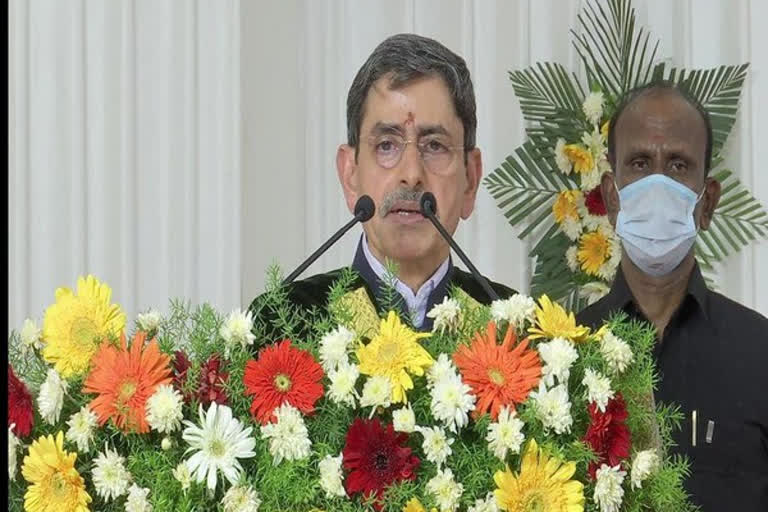Chennai: In an unusual confrontation with the state government, Tamil Nadu Governor RN Ravi has not given his assent to the Bill to ban online gambling games, allowing an Ordinance that was promulgated earlier for this purpose to lapse on Sunday. Unlike 20 other Bills pending for his assent, including a few stripping the governor from the post of Chancellor of state-run Universities, this is a legislation which has received support, cutting across party-lines.
Last week, Raj Bhavan raised certain queries on the Bill and the government has said that it had submitted the necessary clarifications. With the Governor yet to make up his mind, the government is miffed over the inordinate delay. The ruling DMK was forced to bring this legislation as well as the earlier ordinance following persistent demand from political parties due to the frequent suicides by those addicted to online gambling.
As per the legislation, those participating in online gambling like rummy and poker will be punished with imprisonment for three months or a penalty of Rs 5000. While those advertising could be put behind the bars for one year, those organizing it would be jailed for three years. Meanwhile, Madras High Court dismissed a plea challenging the ordinance, after the government submitted that it has not come into effect.
The State cabinet cleared the Ordinance on September 26 and the Governor promulgated it on October 1. Subsequently, it was published in the gazette on October 7, but the rules were not framed. In order to replace it, the Assembly passed the Bill on October 19, at its last session. Usually, an Ordinance is valid for six months and has to be replaced by legislation. But, if an Assembly is convened afterwards, the ordinance will lapse 3 weeks after the session. This is what has happened in this instance.
The previous AIADMK regime too had brought a legislation which was struck down by Madras high Court and upheld by the Supreme Court, necessitating the new legislation with inputs from a panel headed by Justice (retd) K Chandru of Madras High Court. According to a government survey, 74 per cent of teachers have admitted that online games adversely affected the focus of students and another 64 per cent saying that students were having severe eyesight problems.
Given the tenuous relationship between the government of MK Stalin and the Raj Bhavan, the delay by the Governor has raised the hackles of the DMK and its allies as well as others like the PMK, which is a constituent of the BJP-led NDA. Even the saffron party is not opposed to the legislation.
“Everyone is united in banning online rummy in any form. Only the Tamil Nadu Governor could say what infirmities are there in the legislation,” Telangana Governor Dr Tamilisai Soundararajan told the media in Coimbatore.
For the DMK it is another opportunity to target the Governor. For his part, Tamil Nadu Law Minister S Regupathy put the blame on the Raj Bhavan. “Only the Governor knows why he is delaying. In the very first lines of our submission to the Governor, we have clearly explained. 99 per cent of the people have sought a ban on online gambling. Even the WHO has described these games as a disease and its is our primary duty to eliminate the disease. We cannot move the courts against the Governor. Everybody is aware of what will happen if the Governor delays any further,” he fumed, speaking to reporters in Pudukottai.
Going a step further, DMK Deputy General Secretary, Kanimozhi MP, said the office of the Governor is a redundant one. “The ordinance has lapsed. The office of Governor has to lapse. We have been reiterating this. We would have eliminated online rummy if the office of Governor was not there,” she told reporters at Thoothukudi.
Citing the recent observation of the supreme court that the 'silence of the constitution should not be exploited', senior journalist K Venkataramanan said, “it is not clear as to why the Governor who had given the nod for the ordinance, promulgated by him, is reluctant to give assent to the Bill. Well, there is no deadline for the governor to give assent. But, that should not be an excuse for inordinate delays.”




